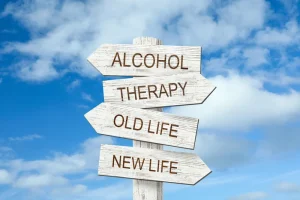Sober living
Alcohol use: Weighing risks and benefits

Early intervention can help prevent some of the negative consequences of drinking. Following diagnosis, a healthcare professional will work with a person to determine the best course of treatment. Alcohol use disorder (AUD) is a medical condition in which a person continues to consume alcohol despite the adverse consequences.
Low-risk drinking advice
Alcohol, the most commonly used substance in the United States, has far-reaching health consequences that impact not only individual patients but the entire healthcare system. Alcohol use in and of itself is not problematic but exists along a spectrum from low-risk use to alcohol use disorder (AUD). The diagnosis, based on the Diagnostic and Statistical Manual of Mental Disorders, Fifth Edition, criteria, ranges from mild to severe, with withdrawal symptoms and tolerance as key indicators. Screening by primary care clinicians, supported by the United States Preventive Services Task Force, facilitates early detection. Treatment involves shared decision-making, combining pharmacotherapy and behavioral therapy with interdisciplinary collaboration essential for comprehensive care and improved outcomes. alcoholism Women who have alcohol-use disorders often have a co-occurring psychiatric diagnosis such as major depression, anxiety, panic disorder, bulimia, post-traumatic stress disorder (PTSD), or borderline personality disorder.
- CBT helps you learn coping skills to help you manage triggers and prevent relapse.
- While people with this condition may start drinking again, studies show that with treatment, most people are able to reduce how much they drink or stop drinking entirely.
- The bottom line is that alcohol is potentially addictive, can cause intoxication, and contributes to health problems and preventable deaths.
Here are some defining characteristics of alcohol dependence:
Administration of probiotics may improve intestinal function and help prevent liver disease. Alcohol misuse can lead to various illnesses such as heart disease. People experiencing alcohol misuse disorder should seek medical attention. The United States Preventive Services Task Force recommends screening adults for unhealthy alcohol use in the primary care setting. This grade B recommendation can be accomplished using either the 1-item Single Alcohol Screening Question (SASQ) or the 3-item Alcohol Use Disorders Identification Test-Consumption.

Main Types of Alcohols
The medication can help you have fewer days when you drink heavily as well as drink less overall. During pregnancy, drinking may cause the unborn baby to have brain damage and other problems. Heavy drinking also may result in alcohol withdrawal symptoms.
- Seeking professional help early can prevent a return to drinking.
- It may be in an inpatient or outpatient setting, and may require detoxification to manage withdrawal symptoms.
- The concept of inveterate drunkenness as a disease appears to be rooted in antiquity.
- Call our hotline at today to speak with an admissions navigator about treatment options for your loved one in order to help with their drinking problem.
- « You don’t have commercials talking about these drugs, » says Stephen Holt, MD, who co-directs the Addiction Recovery Clinic at Yale-New Haven Hospital St. Raphael Campus in Connecticut.
- Clinicians call such a behavioral disorder a disease because it persists for years, is strongly hereditary, and is a major cause of death and disability.
- As well as causing serious health problems, long-term alcohol misuse can lead to social problems for some people, such as unemployment, divorce, domestic abuse and homelessness.
It’s important to find the best fit for you and your needs when it comes to treatment for alcohol addiction. You want to find a treatment center that offers the level of care that’s appropriate for you and offers the amenities you want. Drinking moderately if you’re otherwise healthy may be a risk you’re willing to take.


They may start drinking to cope with stressful events like losing a job, going through a divorce, or dealing with a death in their family or a close friend. Talk to your healthcare provider if you’re under stress and think you may be at risk for relapse. Alcoholism, excessive and repetitive drinking of alcoholic beverages to the extent that the drinker repeatedly is harmed or harms others. The harm may be physical or mental; it may also be social, legal, or economic. Because such use is usually considered to be compulsive and under markedly diminished voluntary control, alcoholism is considered by a majority of, but not all, clinicians as an addiction and a disease. Behavioral treatments—also known as alcohol counseling, or talk therapy, and provided by licensed therapists—are aimed at changing drinking behavior.
Even if they recognize that their alcohol use has become problematic, your loved one may waver between agreeing that they need professional help and feeling like they can handle their alcohol use issues on their own. Your persistence and support may give them the encouraging nudge they need to get treatment, stabilize their life, and https://ecosoberhouse.com/ live fully in recovery. While evidence illustrates the destructive effect that alcohol has on your mental and physical health, it can also negatively impact your relationships with family—including your partner, spouse, and children—and friends.